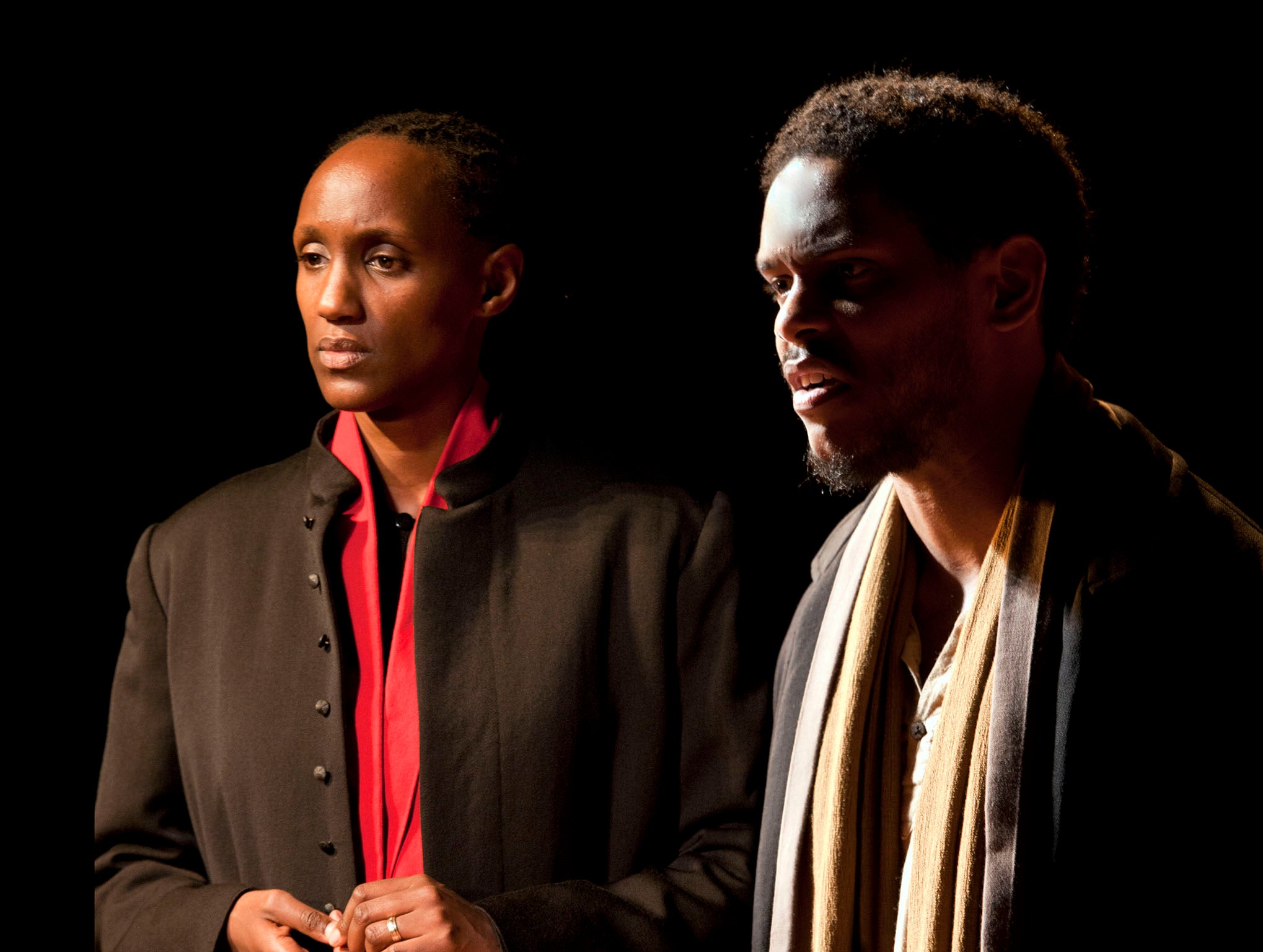Battlefield, Young Vic, theatre review: Deeply-felt piece explores aftermath of a near-apocalyptic conflict
Peter Brook and Marie-Helene Estienne have returned for this potent piece of theatre

It's a little over thirty years since Peter Brook – the most pioneering theatre director of the twentieth century – unveiled his 9-hour adaptation of the Mahabharata, the ancient Sanskrit epic about the war between the Pandava brothers and their cousins, the Kauravas. The production began life in a limestone quarry in Avignon and then toured for four years, making theatrical history with the elemental sweep of its story-telling as it evoked a society brought to the brink of collapse.
Now, at the age of 90, Brook and his long-time collaborator, Marie-Helene Estienne, have returned to the material for this potent, deeply-felt 65 minute piece that takes a magnifying glass to the aftermath of the near-apocalyptic conflict. The Pandavas may have won but, with millions dead on the battle field, “this victory is a defeat” to the new king, Yudishtira (Jared McNeill, who discovers that he unknowingly killed his own half-brother. The story shows him trying to make sense of this tragic waste, together with his distressed mother (Carole Karemera) and his blind, old uncle (Sean O'Callaghan) who lost a hundred sons on the Kaurava side. Seeking advice from a succession of sages (played with a deliciously funny, subversive wryness by Ery Nzaramba), the reluctant new king is treated to a series of animal fables, nested within each other, that grapple, playfully and pointedly, with questions of fate, justice and responsibility.
The luminous acting by the barefoot, multi-ethnic cast of four beautifully serves the production's beguiling mix of grave sorrow and mischievous levity, its shifting moods underscored by the virtuosic Japanese percussionist, Toshi Tsuchitori, on his lone traditional drum. Played on a spare platform of sun-baked ochre (the lovely lighting is by Philippe Vialatte), the proceedings unfold with a limpid minimalism. Coloured scarves symbolise everything from the road on which a worm, humorously happy with his lot, is trying to escape death by crushing from the wheels of chariot, to --when simply and hauntingly wrapped over man's face – the moment when death subsumes him.
A materialist mongoose berates Yudishtira for not giving all his worldly goods to the poor. Wanting them all for himself, he winds up with a ludicrous armful of scarves, but the king outwits the greedy cheat by ordering him to redistribute them immediately. “Are you poor?,” he asks members of the audience, drily acknowledging that it could be quite tricky finding a suitable recipient for the loot in a place like this. It was one of the moments, watching Battlefield, when I wondered how the piece – with its message of acceptance of mortality and of the cycles of fortune – would go down if it were to tour, as the Globe's Hamlet has just done, to the refugee and migrant camp at Calais known as “the jungle”. The perspective has a strange, uplifting charm to the comfortably off. The wisdom of renunciation and resignation might not feel so appealing to a crowd of desperate Syrians. Yet I fancy that it would be the spirit of the show, in its glowing refusal to despair, that might be especially fortifying in such circumstances.
Subscribe to Independent Premium to bookmark this article
Want to bookmark your favourite articles and stories to read or reference later? Start your Independent Premium subscription today.

Join our commenting forum
Join thought-provoking conversations, follow other Independent readers and see their replies